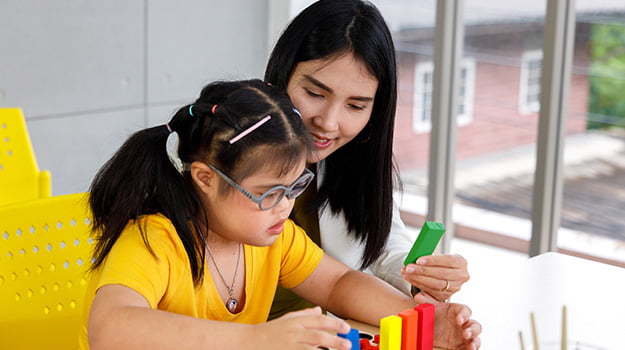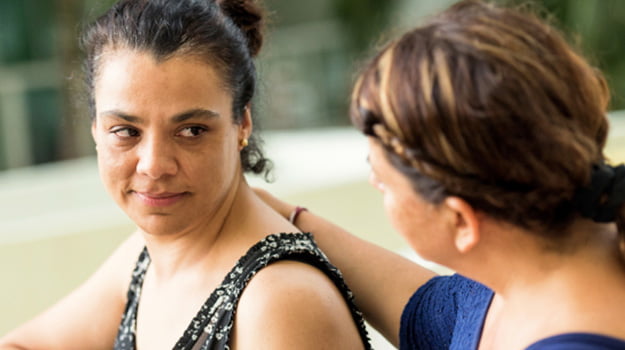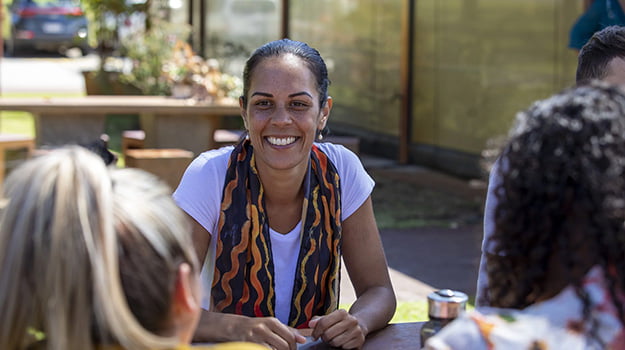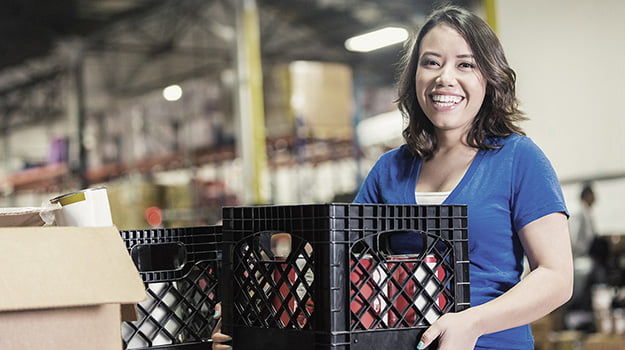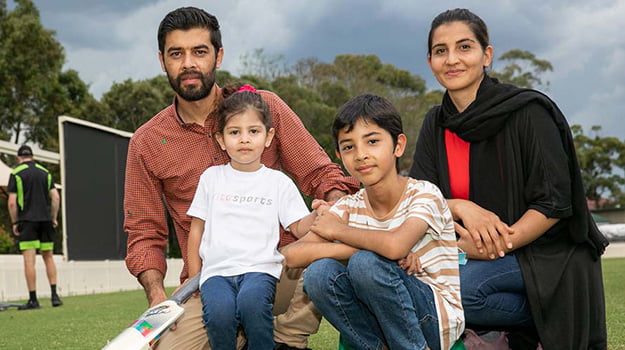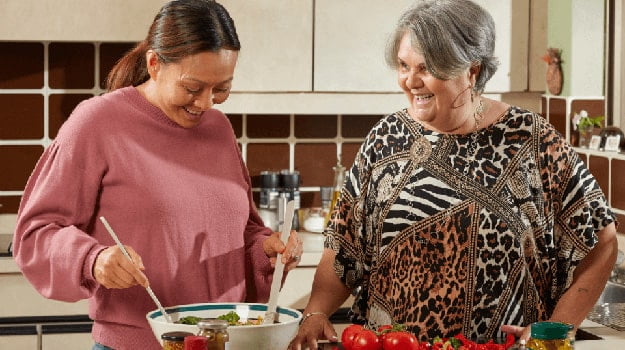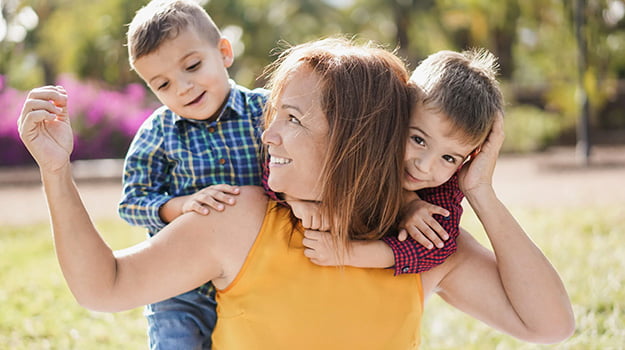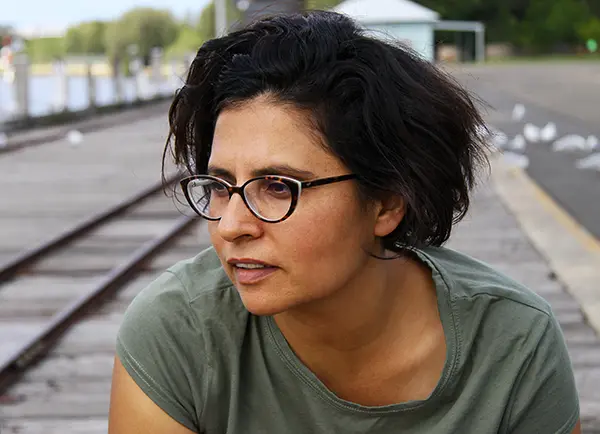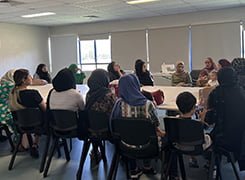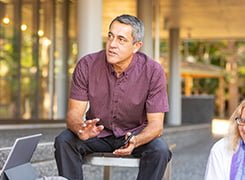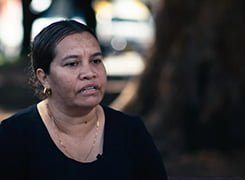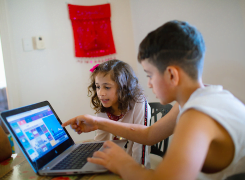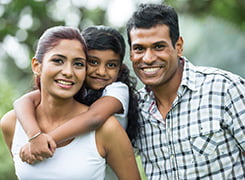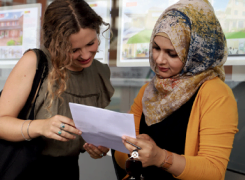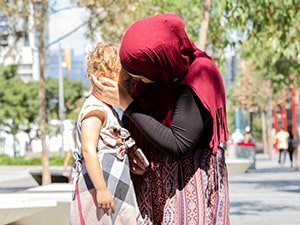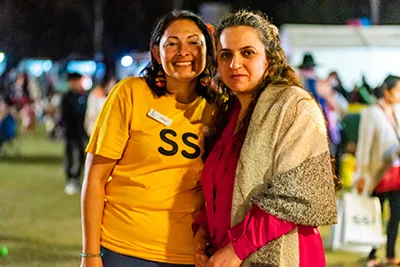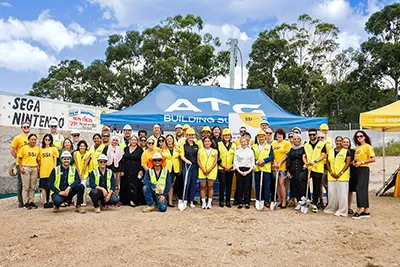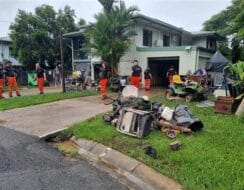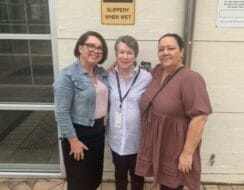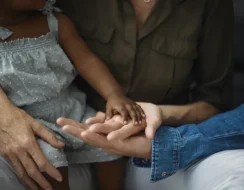09 Nov 2024
StoriesRashida’s Story

How maternity care is a gateway to safety for vulnerable women
Rashida’s* days are busy. Her vital work as a maternity support officer assists some of the community’s most vulnerable women. For many refugees and culturally diverse women experiencing domestic violence, the path to safety often begins with a trusted first-line responder like Rashida.
“Most of the women I support have experienced some form of domestic violence, whether it’s emotional, financial, or physical abuse,” says Rashida.
With dual degrees in Human Services and Arabic linguistics, Rashida brings a unique combination of professional expertise and cultural understanding to her role.
While the program’s primary focus is maternal health, it has become an unexpected but crucial gateway for domestic violence support.
Building trust takes time
“It’s not something that happens in the first meeting,” Rashida explains. “They don’t immediately talk about their personal life. Over time, they feel comfortable with me and start opening up about their situation. It takes time to build that trust.”
This gradual trust-building proves crucial, as many women from Culturally and Linguistically Diverse (CaLD) backgrounds face multiple barriers to accessing mainstream domestic violence support services. Language difficulties, cultural stigma, and limited awareness of available resources can all prevent women from seeking help.
“Sometimes they think this is the norm,” Rashida reveals. “They say, ‘I saw my mom, I saw my sister growing up like that.’ Part of our role is to reassure them that this is not okay and break the stigma that’s been there for years.”
Navigating the system
“It’s really hard for the women to navigate the health system,” she explains. “My role is to break down barriers by providing information and resources, explaining their rights, and helping them make their way through the system and services.”
Despite being thrust into this crucial support role, many first-line responders lack formal training in critical areas such as trauma-informed care, cultural competency, and domestic violence risk assessments. This gap can mean the difference between a woman seeking help or remaining in danger.
Rashida recalls a client who took two years to speak up about her domestic violence experience.
“After the client’s baby was delivered and she exited the program, she kept in touch with me and disclosed what was happening to her 12 months later.”
“With better training in recognising signs and building trust, we could potentially help women reach safety much sooner,” Rashida says.
Investment is crucial
The impact of inadequate support in this area ripples through communities. Without properly trained, often bi-lingual first-line responders, women are falling through the cracks.
Trauma-informed training, cultural competency programs and family, domestic and sexual violence risk assessment training and in-language resources and supports are just some of the areas that could be bolstered to support first-line responders who are receiving disclosures.
“Training in trauma-informed care and cultural competency would be invaluable for first-line responders,” Rashida says. “Understanding how to handle disclosures sensitively and how trauma impacts behaviour could significantly improve our ability to provide meaningful support”.
Despite the complexities of Rashida’s role, she finds deep fulfilment in her work.
“I like to see women in my care become more independent, to thrive,” she says. “I know how it feels coming to a new country, new environment, new culture, new language. To see them thrive, that’s my goal. That’s what keeps me going.”
Rashida was interviewed as part of SSI’s support of 16 Days of Activism Against Gender-based Violence. This year, we’re calling on more investment for first-line responders like Rashida to be better equipped to support women experiencing family, domestic and sexual violence.
*Name/s changed to protect privacy and safety.

